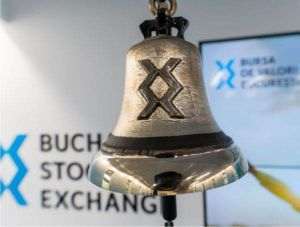We will never see a better time to make major investment mistakes, like this time of crisis.
Since that magic moment, when the risk rate of sovereign bonds, which were considered as "zero-risk", went as high as 98%, anything became possible - the safest investments proved to be the most idiotic.
Countries lost their credibility, banks lost their credibility, money lost its credibility.
Money?!
Not having money is bad.
But having money is scary!
Where do we put our money?
I'm sure all my readers would give me a hug if I told them were to place their money.
And, by golly, I will eventually do it, one way or the other, I will tell them something about that, more or less directly.
• FOUR PRINCIPLES
First of all, I will show you how much the kind of advice you want is worth.
First principle: "Don't believe what you read here".
Second principle: "Don't believe what you read anywhere" (you can already see how accurate the first principle is, because it is contained in the second principle and it was therefore unnecessary. so you don't have to believe it, meaning that the first principle is very accurate in what it says here).
The third principle: "Don't believe what Mark Mobius says".
Say whaat?!
Did I just write that?!
How is that possible?!
Well, I did, so deal with it.
Now read the next principle!
The fourth principle: "It's not the Mark Mobius part of that statement that is the most important part, it was just an example, what matters is that you shouldn't believe any guru, no financial magician, no market legend, regardless of whether they're called Soros, Buffett, Yahoo Finance, Googleplex, Standard & Poor's or the Tooth Fairy".
And you will ask: "Why so jaded?"
And I will just shrug: "Well, just because!"
They're running their mouths, you have the money; if you like investing based on what others say, go ahead.
It's your money, do what you want with it.
But any "market legend" is worthless if the market doesn't exist.
And the markets are a wreck.
• WHAT THE LEGENDARY MARK MOBIUS SAYS
One - he says that the emerging markets are doing better than the developed markets and therefore, you should invest one third of your money in emerging market stocks.
Two - he says that on the third day, God created commodities and saw that they were good, in particular steel and oil, and, as a result, you should invest in commodities, or in stocks of companies dealing in commodities.
Three - he says that eventually, Europe will leave the crisis behind and that its creation of the EFSF and of the special investment vehicle is a good thing, which will fix everything and the United States won't enter a recession which will last (at least) ten years.
Four - I don't know whether it would be good to add that he says that India needs a correction because its stock market is currently in a bubble, because after making a similar statement about Turkey, the Turkish Securities Commission started an investigation, due to suspected market manipulation by Mark Mobius.
Five - in short, he says, "It is the time to invest".
I have to admit that Mark Mobius does give some reasonable advice and he does back it with reasonable arguments, which is very nice (the dumbest thing you could do would be to follow some advice which isn't backed by any arguments, simply because it comes from an investment guru).
The problem with the reasonable arguments of Mark Mobius is that they give the opportunity for hysterical counterarguments.
• HYSTERICAL COUNTERARGUMENTS
One - emerging markets are dependent on developed markets, through their exports, so the sheep will never eat the wolf; instead, the mangy wolf would simply eat a starving sheep, instead of a poor one.
But Mobius is right, the economic growth statistics are A-OK and the idea that the governments of emerging countries would ever forge their data is totally unheard of, based on the civilized principle of presumed innocence, which was validated by the likes of Arthur Andersen, in the case of Enron, by the Government of France in its official statistics, and by the Greek government (that is just to mention the well known and famous cases, to say nothing about the open conflicts between the Governments and the ratings firms, which never downgrade themselves regardless of whatever rubbish they spew out).
Second - steel?!, you've got to be kidding!, (I thought steel was used to make cars, and the latest type of cars is "eco", the one invented by Fred and Barney, of Flintstone fame, which was extremely ecological, being made of stone and all); oil?!, get real!, which one of you has a direct line to Washington to find out the exact day that someone decides Gaddafi's number is up?; commodities in general, ok, commodities and stocks of the companies involved in commodities - but isn't trade itself affected by austerity?, by the financial repression that accompanies the crisis?, by the difficult relations it has with the bank?, by the rescheduling of supplier payments and by the blackmail of trade partners?; how about the currency war between China and the US, it sounds vaguely familiar; and yet Mobius seems to have never heard about it, saying: "China and the United States have a symbiotic relationship, which isn't going away any time soon."
Well, commodities are indeed an alternative; given the current drought, Mobius is right.
Or at the very least, they are not the worst alternative, in the event of a bankruptcy, you are left with a few train cars of cabbage, you pickle it all and wait until the recession blows over.
Three - I just couldn't wait for it!, what?, is there anybody on Earth that knows how the European problem is going to end?! - that's delicious! - yes!, Mark Mobius, the president of the Galaxy knows!, he says that Merkel and Sarkozy aren't giving Greece money just to teach it the meaning of discipline, so I suppose it works the same with Italy, as well as with France! (hmm, this one doesn't make much sense, Sarkozy won't allow France to receive money to pay off its debts, is this some kind of self-punishment? - I doubt Mobius thought so far); so, in fact, Junker's Eurogroup is working day and night for nothing, it should just relax and look at the serene, all-knowing smile of the president of the Galaxy: "Just have China throw some loose change at the problem and poof!, Europe's problems will be gone".
Well, that still leaves the little problem of the fact that China needs to get that loose change from the United States, which won't be able to print it fast enough, because the pace of inflation will overwhelm the people minding the printing presses (they have to go on lunch break after all).
But, Mobius is right, China could save Europe, if it simply gave it the needed money (pay attention!, this is worded in such a way that it can't be refuted, because it is a tautology).
But reality contradicts it - China doesn't want to save Europe (at least not so far).
And then, we don't know for sure whether China has the money that is "needed", and we don't really know how much money is "needed", and we don't really know what it is "needed" for, but we do know that China actually wants concrete things in exchange for that money: ports, airports, train stations and pipelines in Europe, and that in fact it doesn't want to be subject to sanctions any more for devaluing its currency, and yes, it wants everyone to say nice things about it, because it in fact wants to take control of the IMF. More to the point, the Chinese said they would invest money in a special vehicle of the IMF, which would then give the money to the special vehicle of the EFSF, which Mark Mobius hails as the solution to Europe's problems, a little before the accusation that the special vehicle of the IMF itself is illegal (to say nothing of the controversy around the special vehicle of the EFSF).
But who cares about such minor details.
What is important is to remember that, at any rate, the European crisis will be solved.
Four - "passons", like the French would say, we'll just skip number four, because market manipulation is hard to prove anywhere, not just in Romania.
• FIVE, (OR MORE LIKE SIX, AS IN "WATCH YOUR SIX!")
Five - this sentence "It is the time to invest" is a quote which was said 82 years ago.
The idea was launched about seven years before the Yul Brynner of Wall Street was born.
On October 30, 1929, "New York Herald Tribune" published the opinion of market analyst R.W. McNeel: "This is the time to buy stocks".
Do you know which day of the week that was?
Thursday.
The day that comes after Wednesday.
Not just any Wednesday, though.
Black Wednesday, to be more precise.
Wall Street had crashed.
After that day, the whole world entered what was called "The Great Depression", which lasted twelve years and morphed into the Second World War, just so people can lose track of it.
Well, on the which followed Black Wednesday, "New York Herald Tribune" advised its readers to buy stocks.
Because the time was right.
They were cheap.
All the people who bought stocks that day, went to their graves and never made back their losses.
• IS THIS A FINANCIAL ARMAGEDDON OR NOT?
In fact, the problem is not that the prediction isn't accurate in itself - it's true, the market collapse brings about opportunities which one can dream about for years, like a broker recently said on the BBC.
The real problem is, can you give the correct answer to the question: "Is this a financial Armageddon?"
All of the opinions of Mark Mobius are correct, (despite my pamphlet), if and only if this crisis isn't an Armageddon.
Mark Mobius says he doesn't believe this is Armageddon.
Warren Buffett also says this isn't Armageddon, in fact, he is actually investing several tens of billions of dollars in companies listed on the NYSE, just to set an example (naysayers are saying he invested money in companies which he knows Obama would rescue if something happened - which would be nothing more than criminal manipulation).
Can someone tell for sure that this isn't financial Armageddon?
I for one don't think that there is someone that can make an honest prediction on this subject.
Because of this, I have no faith in any of the market's legends.
Ask yourselves the question: "Is this a financial Armageddon, or not?"
Give yourselves an answer to that question and only then look for your investment opportunities.
Don't invest until you have that answer.
Or, do what you want - it is your money.
You can however speculate.
For instance, in the two hours between the announcement that S&P would cut France's rating and the time it announced that it made a mistake in its numbers (of about 50 billion Euros), you would have made a pretty penny buying French stocks.
For speculation, follow the news.
Fundamental analysis only makes sense if you are certain this isn't Armageddon.
• Wrong forecasts made at the beginning of the Great Depression
"1930 will be a splendid year for employment", according to the Labor Department of the United States, forecast for the new year, made on December 1929.
"I am convinced that through these measures we have reestablished confidence", according to Herbert Hoover, the president of the US, in December 1929.
"While the crash only took place six months ago, I am convinced we have now passed through the worst -- and with continued unity of effort we shall rapidly recover. There has been no significant bank or industrial failure. That danger, too, is safely behind us."
- Herbert Hoover, President of the United States, May 1, 1930
"This is the time to buy stocks. This is the time to recall the words of the late J. P. Morgan... that any man who is bearish on America will go broke. Within a few days there is likely to be a bear panic rather than a bull panic. Many of the low prices as a result of this hysterical selling are not likely to be reached again in many years", according to R.W. McNeel, market analyst, quoted by "New York Herald Tribune", October 30th, 1929.
"The Wall Street crash doesn't mean that there will be any general or serious business depression... For six years American business has been diverting a substantial part of its attention, its energies and its resources on the speculative game... Now that irrelevant, alien and hazardous adventure is over. Business has come home again, back to its job, providentially unscathed, sound in wind and limb, financially stronger than ever before", according to BusinessWeek, November 2nd, 1929.
"...despite its severity, we believe that the slump in stock prices will prove an intermediate movement and not the precursor of a business depression such as would entail prolonged further liquidation...", according to Harvard Economic Society (HES), November 2nd, 1929.
"The end of the decline of the stock market, will most likely not be long lived, but will instead last a few days more at best", according to Irving Fisher, professor of economics at Yale University, November 4th, 1929.
"For the near future at least, the outlook is bright", according to Irving Fisher, PhD in economics, in the beginning of the 1930s.
"...the outlook remains favorable", according to Harvard Economic Society, March 29th, 1930.






























































